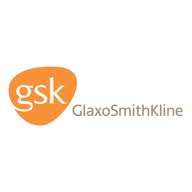 GlaxoSmithKline announced plans to buy Human Genome Sciences for about $3 billion. Human Genome is a biopharmaceutical company, which have been in high demand for acquisition in recent years. As older treatments lose patent protection, large drug makers have been seeking to restock their product pipelines with new offerings.
GlaxoSmithKline announced plans to buy Human Genome Sciences for about $3 billion. Human Genome is a biopharmaceutical company, which have been in high demand for acquisition in recent years. As older treatments lose patent protection, large drug makers have been seeking to restock their product pipelines with new offerings.
GlaxoSmithKline is paying $14.25 a share in cash under the terms of the deal. This is nearly twice the amount of Human Genome Science’s shares before news was disclosed of the Glaxo’s initial offer. Glaxo said the boards of both companies had approved the deal. The purchase is being made on friendly terms, ending a long hostile takeover campaign. It also ends months of jockeying between the two drug companies and ends Human Genome’s efforts to find an alternative buyer for the company.
GlaxoSmithKline has extended offers for the company several times. GlaxoSmithKline first bid to pay $13 a share to acquire Human Genome in April. This amount was 81% higher than its closing share price the day before the bid was announced. Human Genome rejected the initial bid as insufficient and put itself up for sale. Human Genome also put up defenses, like a shareholder rights plan, aimed at thwarting a hostile takeover bid. GlaxoSmithKline was invited to participate in the auction process, but the company decided to take its bid directly to Human Genome’s shareholders.
The two drug companies are partners in developing the lupus drug Benlysta. The two are splitting the profits from sales of Benlysta and are working together on two other treatments: one for heart disease and one for diabetes. Darapladib, Human Genome’s heart disease drug, has also been seen as a potentially promising new product.
The steep decline in Human Genome’s share price over the past 12 months was driven in part by high marketing costs for Benlysta. When the lupus drug received approval from the Food and Drug Administration, it was the first new treatment for the condition in nearly 50 years. Sales of Benlysta have been slow, falling far short of expectations.
